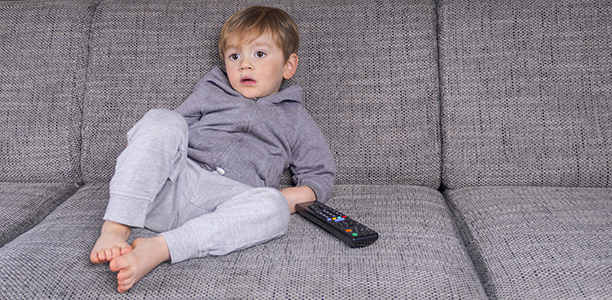Watching more than three hours of television a day is associated with poorer language skills for 11-year-olds, according to a new international study.
The study, by researchers from England’s Newcastle University, Scotland’s Queen Margaret University and La Trobe University and Griffith University in Australia, also found children who watch less than three hours of TV a day when they start primary school are more likely to communicate their ideas effectively when they move on to secondary school.
Dr Elizabeth Westrupp from La Trobe’s Judith Lumley Centre was one of the researchers involved in the Australian-funded study that suggests that most five-year-olds can watch up to three hours of television a day with few ill effects on their language skills by the time they leave primary school.
The researchers used data from thousands of children in the UK’s Millennium Cohort Study and found, while watching less TV is generally better, TV has a different effect depending on the children’s language skills at 11 years.
In particular, while it appears to make little difference to the children with higher language scores, it is strongly associated with the performance of those who have poorer language skills later on.
The researchers looked at the impact of parental involvement with children when they were aged three and five and then examined how well they were able to communicate their ideas at 11.
They asked parents how often they:
- Read to their children
- Told stories
- Visited the library
- Took them to the park
- Watched television – for three hours a day or less
Reading to young children was, on average, associated with better performance, but again it had much less of an effect on children with the best language scores at 11 years and, correspondingly, much more of an effect on those who were doing less well.
The study also found that poverty and the more siblings a child had were negatively associated with language development at the age of 11.
Lead researcher James Law, Professor of Speech and Language Sciences, in Newcastle University’s School of Education, Communication and Language Sciences said:
“As researchers, we’re really interested in looking at things which parents can do which can make a positive impact on helping their child develop good language skills.
“The television effect was a very interesting finding and we saw it had a bigger impact for the children with lower language skills, but made little difference to those who had had higher levels of language.
“It suggests that the Government and local authorities might want to consider how they get messages about setting limits on television and reading to children across to families who may need support in issues such as delayed language development.
“Television isn’t the enemy. My personal view is that it’s how you watch it that’s important. If you are actively watching a program with your children and they’re talking about what’s happening, you’re asking and answering questions, then I think that’s fine and will be a positive experience for both of you. It’s when children are sat in front of it for hours with no input – in effect an electronic babysitter – that I think it becomes problematic.”
(Source: La Trobe University)




 (3 votes, average: 3.67 out of 5)
(3 votes, average: 3.67 out of 5) 






